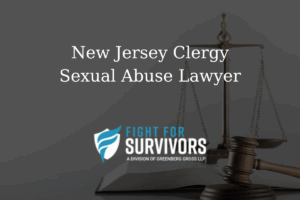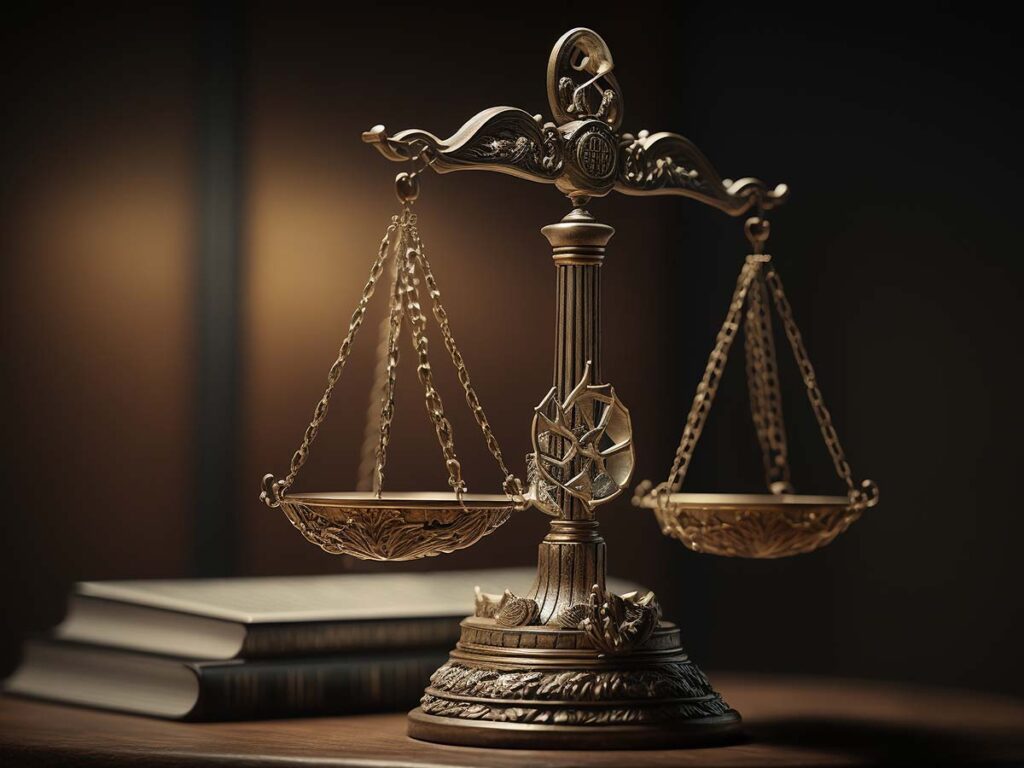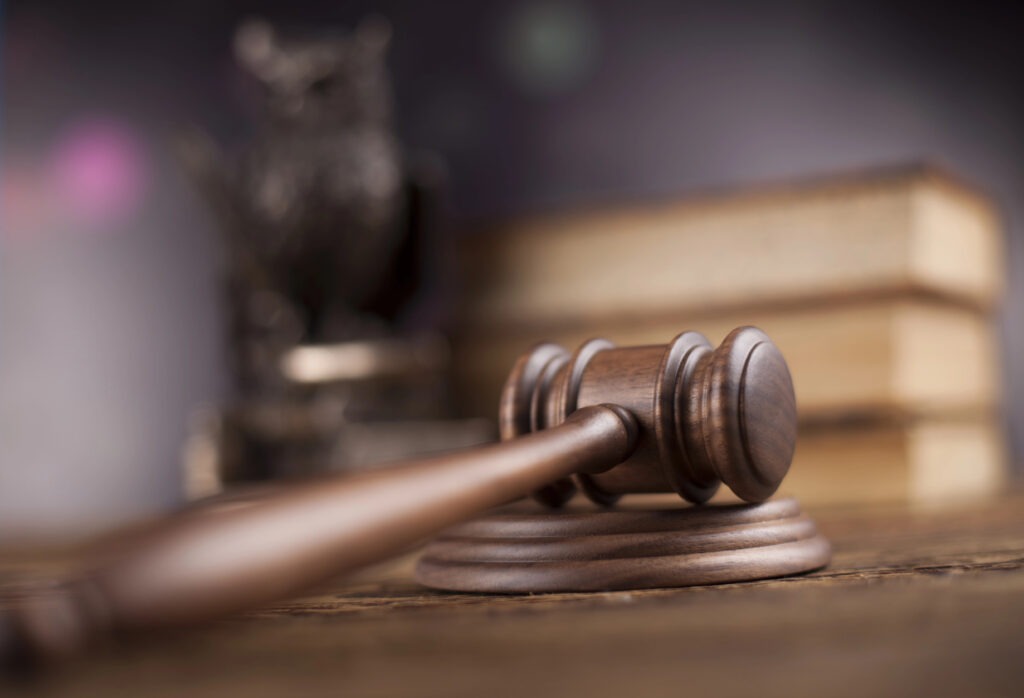
New Jersey Clergy Sexual Abuse Lawyer
Sexual abuse by members of the clergy is a deep betrayal of faith, trust, and safety. For decades, survivors of clergy sexual abuse across New Jersey have lived with the trauma of what they endured in silence. Many were children at the time of the abuse, victimized by priests, clergy members, or other religious leaders who were supposed to protect them. When abuse occurs in a sacred or spiritual setting, the psychological harm can be particularly devastating, often lasting well into adulthood.
Greenberg Gross LLP is committed to helping sexual abuse survivors seek justice through civil lawsuits. If you were sexually abused by a clergy member in New Jersey, you are not alone. Legal options exist to hold both individuals and institutions accountable. Whether the abuse occurred in a Catholic Church, religious institution, or any setting connected to clergy, our law firm stands ready to provide legal representation grounded in compassion, strength, and respect.

The Ongoing Crisis of Clergy Abuse in New Jersey
Over the past twenty years, public investigations and survivor accounts have uncovered widespread child sexual abuse by clergy across the United States. In New Jersey, hundreds of survivors have come forward with credible claims against the Catholic Church, various dioceses, and other religious organizations. In many clergy abuse cases, the abuse occurred during childhood but was concealed for decades by church leadership, who often moved abusive priests to new parishes rather than removing them from ministry or notifying law enforcement.
The abuse occurred in churches, rectories, religious schools, and even private homes under the guise of mentorship or spiritual guidance. Many victims were altar servers, children preparing for confirmation, or young students in Catholic schools. Other religious leaders beyond the Catholic clergy have also been implicated in perpetrating sexual abuse against children and vulnerable individuals.
Survivors have described the trauma of being sexually abused by clergy members and then silenced by shame, fear, and threats. These experiences have led to a lifetime of emotional suffering, broken relationships, lost faith, and mental health struggles. Despite these painful experiences, survivors have the right to seek justice, and New Jersey law has evolved to support that effort.
Legal Rights and the Statute of Limitations in New Jersey
In 2019, New Jersey enacted S477, which significantly expanded the civil statute of limitations for survivors of childhood sexual abuse. Under this law, survivors can file civil claims until age 55, or within 7 years from the date they first discovered the abuse caused them harm—whichever is later. The law also included a two-year revival window (from Dec. 1, 2019, to Nov. 30, 2021) during which previously time-barred claims could be filed.
Filing a sexual abuse claim or lawsuit allows survivors to recover compensation for therapy, medical treatment, emotional suffering, and other damages. Civil lawsuits also hold religious institutions accountable for failing to protect victims or actively concealing abuse. In clergy abuse cases, civil claims are often filed not only against the abusive priest or clergy member but also against the Catholic dioceses or religious organizations that allowed the abuse to continue unchecked.
Survivors who suffered sexual abuse deserve to know that they can pursue legal action, challenge systems of silence, and recover compensation without being re-victimized. The legal professionals at Greenberg Gross LLP are committed to helping you understand your legal rights and take action at your own pace.
Filing a Civil Lawsuit for Clergy Sexual Abuse
Civil lawsuits offer a path to justice and healing for survivors. Unlike criminal charges, which seek punishment and are prosecuted by the state, civil claims allow survivors to control their case, seek financial compensation, and force transparency from institutions that protected abusers. These civil lawsuits often include detailed evidence of abuse, witness testimonies, and internal church records showing patterns of misconduct.
If you file a lawsuit, your legal team will work to establish that abuse occurred and that the institution had knowledge of the risk posed by the clergy member. Many Catholic dioceses have faced lawsuits for covering up prior abuse allegations, failing to conduct proper background checks, and protecting clergy over victims. Civil claims expose these failures and ensure the church is held accountable.
In some cases, victims may also pursue claims for child sexual abuse or childhood sexual abuse involving other religious leaders or affiliated school officials. Regardless of the details, filing a civil case can be an important part of the healing process. Our trial lawyers understand the sensitivity of these cases and are experienced in protecting survivors’ dignity throughout the legal process.

The Role of Institutions in Enabling Clergy Sexual Abuse
The Catholic Church has faced global criticism for the way it handled priest sexual abuse allegations. Across dioceses in New Jersey, internal church investigations have revealed systemic patterns of abuse, cover-ups, and failures to protect children. Many clergy abuse victims have come forward to reveal that church officials knew of the allegations and moved abusive priests from one parish to another instead of removing them from ministry or alerting law enforcement.
This type of institutional complicity gives survivors grounds to file civil claims not only against the abuser but against the institution as a whole. Whether the abuse was carried out by a Catholic priest, youth minister, or another clergy member, the church or religious institution that enabled or ignored the abuse can and should be held accountable.
Civil lawsuits can bring truth to light and force religious organizations to reevaluate their practices, admit past wrongdoing, and offer long-overdue acknowledgment to the victims of child abuse.
Helping Survivors Move Forward
Survivors of clergy sexual abuse often live with the effects of their trauma for years—sometimes decades—before speaking out. Emotional isolation, difficulty with intimacy, and trust issues are common long-term effects. In many cases, survivors may not fully recognize what happened to them until adulthood. Others may have suppressed memories or been discouraged by family members or religious communities from coming forward.
Greenberg Gross LLP believes every survivor deserves a safe space to tell their story. Our sexual abuse lawyers have extensive experience fighting for justice on behalf of those who have suffered abuse by clergy. We provide survivors with clear legal guidance and support from the first confidential consultation to the resolution of their case.
Taking legal action is about more than holding abusers accountable. It’s about reclaiming your power, protecting future generations, and receiving the recognition and compensation you deserve. If you were sexually abused by a clergy member in New Jersey, you are not alone—and you have legal options.
Contact Us for a Confidential Consultation
You do not have to face this process alone. Greenberg Gross LLP offers a confidential consultation to discuss your case and explain your legal options. Whether the abuse occurred in a Catholic Church, religious school, or other religious institution, we are here to help you seek justice with dignity and strength.
If you were sexually abused by a clergy member, now is the time to act. The law is on your side, and your story matters. Let us help you hold the church accountable and take the first step toward healing.
Frequently Asked Questions
Can I file a lawsuit if the abuse happened years ago?
Yes. New Jersey law allows some survivors to file civil claims until age 55, or within 7 years of discovering that the abuse caused them harm—whichever is later. While the two-year revival window for previously time-barred claims ended in November 2021, many survivors may still be eligible under the current statute.
Who can be held responsible in clergy abuse cases?
In addition to the clergy member who committed the abuse, religious institutions—including dioceses, churches, and other leadership bodies—may be held liable for concealing or enabling the abuse.
What if the abuser is no longer alive?
You can still file a civil lawsuit. The legal focus is on the abuse and the institution’s role in allowing it to happen. Many survivors have successfully brought civil claims even after the abuser’s death.
What kind of compensation can I recover?
Survivors may recover compensation for therapy, medical treatment, emotional suffering, and punitive damages in some cases. Compensation helps address the lifelong impact of abuse.
How do I begin the legal process?
Start by speaking with a sexual abuse lawyer. At Greenberg Gross LLP, we offer a confidential consultation to evaluate your claim and discuss the best path forward.